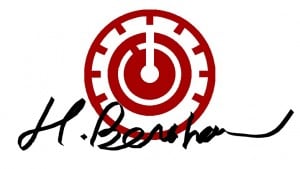L’information ne se comporte pas du tout comme la matière : contrairement à un caillou, elle n’a pas de position spatiale ni temporelle et on peut à loisir la dupliquer, la partager, la résumer, la supprimer…
The information does not behave at all like the matter: unlike a stone, it has no temporal or spatial position and you can freely duplicate it, share it, summarize it, delete it …
Hervé Poirier
The full Mont Order conference is available for the public to view, after it took place today.
I realize that this video is long – the discussion between our advisers on a number of controversial hot topics was so effective that it turned out to be around half an hour longer than we had originally decided it should be. I’ll be creating shorter clips encapsulating some of the most important points, and uploading them to YouTube separately to deliver some of the most provocative and effective statements recorded there.
https://www.youtube.com/watch?v=aWH16dDgso4I would like to go through some of the best points that I heard at the conference, and I hope to publish a full transcript of the discussion at ClubOfINFO that you will be able to pick up in the coming days.
Here’s something I wanted to express, taken directly from the transcript, and only within the first twenty minutes of the discussion:
HARRY: Yes, I know, I watched something recently – I saw something recently on a YouTube video that struck a chord with me, which was claiming that the surveillance that we have reduces freedom. Because – even though we go on about how the Arab Spring and things like that were an example of people standing up to their government, and so on – if the state can see everything that’s going on, over the Internet – it can thwart people’s attempts to organize through the Internet anyway. Because it can see everything, so the states that have that surveillance advantage aren’t as vulnerable to people mobilizing through the Internet as a country like, say Qaddafi’s Libya was. Because he didn’t control Facebook or Twitter, whereas the American government, you could argue, does control Facebook or Twitter because those websites are based in the US, and if anything the US can switch them off if it wants to.
The video I mentioned in this part of the video came from a specific YouTube user whose account name I can’t remember or rediscover on my history, which is unfortunate. If this information comes back to me again, I will remember to post it. I feel that it made a good point by indicating that mass surveillance not only stifles and thwarts terrorist attacks, it also stifles and thwarts any form of dissent or attempts to stand against the autocracy of the nation-state. What can be used to bust a terrorist plot can equally be abused to bust a journalist with information the government isn’t comfortable with, or to bust a protest action, or some other politically healthy and normal democratic activity. Surveillance fundamentally makes society less free.
Dirk Bruere, representing the Zero State autonomous transnational community, also made the following commentary on the same topic of restrictions to freedom of speech that plague our diminishing nation-states:
DIRK: Or, in Britain, for those of you who don’t know, trolling on Facebook pages and tweeting is becoming – has become a criminal offense, you know – offending somebody is now a criminal offense. So you have a kind of soft tyranny where, if somebody’s offended, potentially they could take you to court or the police could arrest you. It depends, you know, whether police are feeling busy on a particular day or whether they take the complaint seriously.
…
DIRK: That does tend to, sort of, damp down discussions, especially more heated discussions, which is, you know, it has its good and its bad points but it’s certainly not free speech.
The other much more insidious form of lack of free speech – well, it’s not even lack of free speech – it’s the fact that nobody knows what’s happening. You know, there’s so much free speech, so many claims that you just can’t sort out the truth. I mean, a perfect example is, between me and you.
This exchange of ideas about the negative effects of the so-called war on terror and the way that the confusion and diffusion of public sentiment on the Internet serves a government that wants to hide its abuses was very useful. As I continue to produce the transcript, I will be tweeting further comments and video clips from the Mont Order advisers’ conference that will affirm our positions on these kinds of issues.
‘Freedom in #UK is stifled by #hate speech legislation, #surveillance, paranoia’: #MONT Order http://t.co/oVpeAGf2oc via @YouTube
— Harry J. Bentham (@hjbentham) February 14, 2015
Follow my Twitter account @hjbentham for further defining comments from the Mont Order as I publish them.


